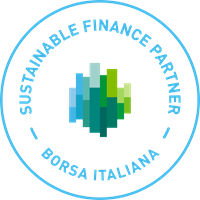The CSRD directive was issued by the European Commission with the aim of increasing the transparency of companies regarding their environmental, social and governance impacts through more stringent reporting requirements for many companies and specific requirements for both sustainability reporting and verification of this information.
July 6, 2024 is the CSRD’s target date for transposition by member states.
In the Italian legal system on February 16, 2024, the draft of the implementing decree of the CSRD directive, prepared by the Department of the Treasury and the State General Accounting Office, was published and put out for public consultation until March 18, 2024.
During the consultation, some trade associations raised a number of concerns regarding the structure of the decree.
In this content we will elaborate on the scope of the CSRD directive and the content of the Italian transposition decree.
Corporate Social Responsibility Directive: the scope of application
The CSRD expands sustainability reporting requirements to all large companies and groups, including listed SMEs (excluding micro-enterprises), and introduces European Reporting Standards (ESRS) developed by EFRAG.
It also establishes a requirement for sustainability reporting to be subject to a compliance audit.
The main purpose of the CSRD directive is to harmonize the discipline inherent in corporate sustainability reporting requirements. To do this, one of the first steps taken was to expand the scope of those covered by the reporting obligations, namely all large companies, including listed SMEs.
In addition, sector-specific standards developed by the EFRAG Advisory Body were introduced precisely to address the need to define rules on sustainability reporting that are the same for all companies involved.
According to the CSRD directive, companies obliged to prepare a Sustainability Report (or Sustainability Report) are large companies, both listed and unlisted, that meet at least one of the following criteria:
- They have more than 250 employees;
- They own assets of at least 20 million a year;
- They generate net revenues in excess of 40 million euros.
In addition, non-European companies with a minimum turnover of 150 million euros in the EU zone are also required to prepare a mandatory Sustainability Report.
Companies will have to have their Sustainability Report audited for compliance by a statutory auditor or audit firm, following a process that initially achieves a limited level of assurance and then evolves to a reasonable level of assurance.
This type of audit responds to one of the most important principles of the CSRD: the reasonable assurance, a rule that the same kind of control that is done on the annual financial statements must also be done on the Sustainability Report.
In Italy, Consob will be responsible for compliance oversight for listed companies, while there is no further oversight for unlisted companies.
From the denial of independent contractors to the penalty system: post-consultation friction points
Article 5 of the CSRD stipulates that EU member countries must transpose the new Directive within 18 months, so they have until July 6 to incorporate it into their national laws. In Italy, a draft of the implementing decree, prepared by the Treasury Department and the State General Accounting Office, was published on Feb. 16, 2024, and made available for public consultation until March 18, 2024. One of the most controversial points that emerged from the consultation concerns the decision not to also allow independent attestation service providers to offer assurance services. The European Commission, in the text of Directive 2022/2464, had called for member states to “offer companies access to a broader range of independent providers of sustainability reporting compliance attestation services.” This would have allowed attestation to be obtained not only from statutory auditors but also from independent attestation bodies, with the aim of improving “audit quality” and creating “a more open and diverse audit market.” France, as the first member state to transpose the Directive into its law, immediately adopted the option of extending the option to provide assurance services to both licensed auditors and accredited third-party bodies. Italy, however, chose a different approach.
It decided not to extend this option immediately and instead instructed CONSOB and the MEF to conduct a joint study within three years of the decree’s entry into force. This study will need to assess the magnitude of the phenomenon, the ability of the market to handle the increase in the number of entities obligated to sustainability reporting, and the possible burdens and benefits of introducing independent attestation service providers. Confindustria criticized the Italian government’s decision, pointing out the risk of an increase in the time it takes to review documents. Another issue of interest to business associations was the penalty system provided for in the transposition decree.
Assirevi, Assonime, Confindustria, Abi, Ania, and the National Council of Certified Public Accountants and Accounting Experts have suggested that this system be revised because it is considered too similar to that provided for financial statements. The decree stipulates that violations shall be punished in accordance with the rules on false corporate communications, which are mainly criminal in nature (Articles 2621-2622 of the Civil Code), and with the administrative fines provided for failure to file with the Commercial Register. For the penalty system, too, the Directive had left Member States free to adopt the system they deemed most appropriate.
The main countries of the European Union opted for a less stringent system than the Italian one. For this reason, business associations fear that Italy’s sanctions system may “penalize the competitiveness of the Italian system and incentivize the already worrying phenomenon of relocation of registered offices to European countries with less restrictive supervisory and enforcement systems.”


